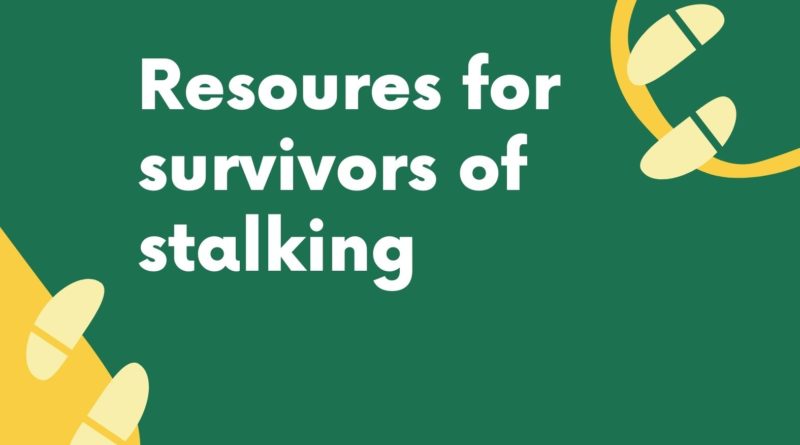Resources for survivors of stalking
In Humboldt County, there are resources that offer survivors of sexual assault, harassment and domestic violence. Not many people know that some of these services also help people who have experienced stalking.
In February 2022, a stalking survey conducted by the United States Department of Justice Bureau of Justice Statistics, revealed that women are twice as likely to be victims of stalking than males and only 29% of the survivors reported it to the police.
“We talk a lot about consent which is great but when it comes to stalking that isn’t something that I recall hearing too much about,” said Liliana A. Cortes, violence prevention advocate at Cal Poly Humboldt’s Women’s Resource Center.
What is stalking?
Stalking can be defined as repeatedly following someone, sending unwanted messages or gifts and keeping track of their location to cause the victim fear for their safety. The definition of stalking varies from state to state across the U.S.
“One of the difficulties of articulating and understanding what is harmful behavior, it’s one of those places where rape culture has mixed up a lot of the traditional communication stories about what it means to be romantic or persuasive in comparison to being creepy,” said Maxwell D Schnurer, chair of the sexual assault prevention committee at Cal Poly Humboldt. “Those lines are often thin and complicated for folks and it’s one of those things that need a lot more education and work.”
Cal Poly Humboldt’s Clery Act of 2021, states that zero students have experienced stalking in 2020. However, the recently released Cal Poly Humboldt 2020 Safer Campus Survey states that 162 students have experienced stalking. A lack of reporting may contribute to the drastic changes in reports.
“I think we know why many folks don’t talk to authorities,” Schnurer said. “They might be afraid of retaliation, may not trust law enforcement, believe that the system isn’t going to do right by them or that they might not know about their resources.”
Cal Poly Humboldt students resources:
Campus Advocate Team
They are made up of members who are professional counselors trained to respond to trauma broadly. CAT offers 24/7 free confidential counseling as well as speaking on behalf of the survivor to police, hospitals, and Title XI reports.
Phone: (707) 445-2881
Title IX Coordinator
They can adjust class scheduling and conduct investigations after reporting a Cal Poly Humboldt student or faculty member of sexual harassment, assault and stalking. You can reach out to Niki Viso, Title IX investigator.
Email : nicki.viso@humboldt.edu.
Phone: (707) 826-5175 Monday – Friday 8:30 a.m – 5:30 p.m.
Humboldt Ombuds
Legal advice to survivors to let them know of their rights. Contact Scott Paynton
Email: ombuds@humboldt.edu or Phone: (707) 826-3252 or Suzanne Pasztor at Email: ombuds@humboldt.edu Phone: (707) 826-3643
Women’s Resource Center
They can help people find resources and be a support system for survivors. Contact: Liliana A. Cortes, violence prevention advocate.
Email: lac133@humboldt.edu.
University Police
They are working on continuing their self-defense classes in the upcoming months. You can file a report with them at their office on campus.
Phone: (707) 826-5555
Resources for Sexual Assault Victims in Humboldt County:
North Coast Rape Crisis Team
24 hour free and confidential counseling, if the victim doesn’t wish to speak to people in authority such as police, they will speak on behalf of the survivor.
Phone: (707) 445-2881
Humboldt Domestic Violence Services
24/7 support line to talk to someone and explore options.
Phone: (707)-443-6042
Sovereign Bodies Institute
For indigenous people who feel comfortable talking to other indigenous people.
Call or text line: (707) 335-6263 Monday – Friday from 6 a.m. – 8 p.m.
*If you require immediate assistance call 9-1-1




